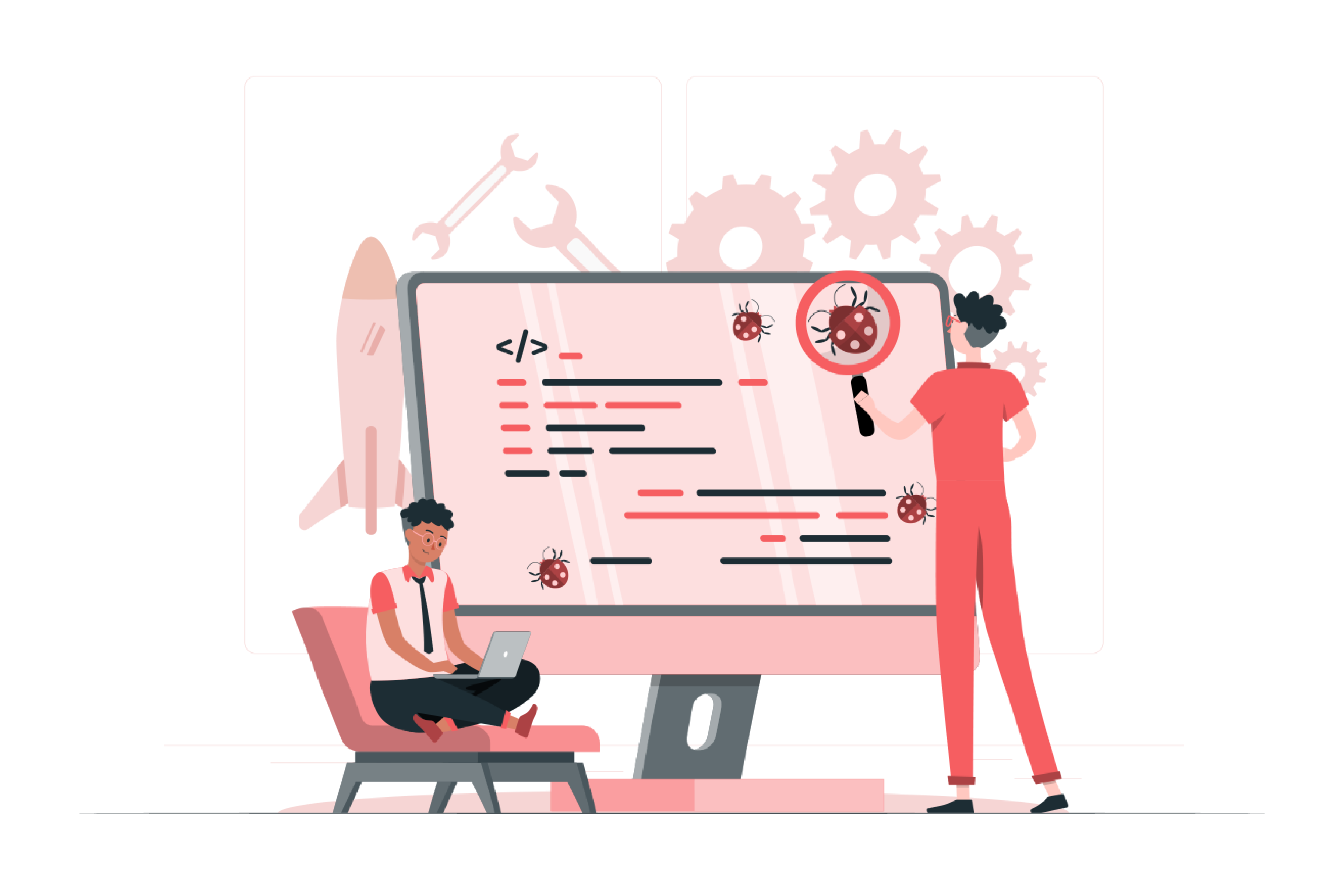Advanced Certification in Software Testing
- Course Designed by Industry Experts
- Live Sessions
- Digital Certificate after Course Completion
- 100% Placement Assistance
- Dedicated Placement Cell
- Notes and Live Examples
- Mock Test & Interview Preparation

About Program
This Software Testing certification covers advanced practices, tech leadership, and key tools like Selenium, JUnit, TestNG, JMeter, and OWASP ZAP. Emphasizing hands-on tasks and real-world insights, the course includes quizzes, assignments, and mentorship. Internships and job placements accelerate career growth, leading to industry certification. Classes run five days a week, with weekend sessions for working professionals.
Course Details
The Advanced Software Testing Certification teaches BDD and TDD for bug detection and resolution. It covers test planning, design, execution, and defect tracking with a focus on quality. Participants create automated test scripts, emphasizing performance and security testing. Real-world projects and case studies certify graduates in advanced software testing, enhancing their market competitiveness.
What You Could Become
Advanced Certification in Software Testing grads excel in roles like Senior Test Architect, Test Automation Specialist, QA Director, Performance Testing Expert, Security Testing Consultant, Agile Testing Coach, Software Testing Manager, Continuous Improvement Leader, Consultant, Trainer, or QA Analyst, showcasing versatility in the dynamic testing field.
Course Highlights
Download Brochure and Get Started Now
Meet your Educators & Mentors
Our Curriculum
Admission Process
Secure admission to the Certification Course through a simple four-step process.
Evaluation and Selection
We carefully assess your application and qualifications, considering education, experience, and program goals. Admission status will be confirmed upon review.
Apply
Visit our program's website to apply, complete online application, provide name, contact info, and birthdate, education: List your highest degree, institution, and major/field, apply with relevant work experience to boost your chances, discuss your program interest, job aspirations, and course fit.
Enrollment
For administrative purposes, pay the application fee - INR 1,999. The webpage lists fees and payment methods. We reserve your position in the following course upon application submission, ensuring availability during review
Acceptance Letter
Check your mailbox or email for our acceptance letter. This letter includes important admission information, including any additional steps or payments.
Why Techeir?
At Techeir, we believe that knowledge is the key to unlocking the future. Our mission is to empower learners like you with the skills and expertise required to thrive in the dynamic world of technology.

Supportive Community
Techeir connects students to a supportive community. Resources include mentoring, networking, and learning.

Thorough Curriculum
We plan our curriculum to give you a complete education. Mastering fundamental and advanced concepts will help you succeed.

Flexible
We provide online and part-time courses for busy people. School and other obligations can be balanced with this flexibility.

Expert faculty
Industry veterans and educators conduct our courses. Real-world industry specialists will teach you.

Practical Learning
A hands-on approach. For employment preparation, our students work on real-world projects.

Job-Oriented Approach
Our courses emphasize relevant skills and knowledge for today's competitive job market.

Specialisations and Electives
Tailor your courses to your interests and career goals. Customize your learning with this freedom.
Success Stories
The most hands-on, practical, and intensive coding-led courses to fulfill your ambitions.
Program Fee



What will you achieve?
- QA Tester/Analyst
- Test Automation Engineer
- Performance Testing Engineer
- Security Testing Specialist
- Test Lead/Manager
- DevOps Testing Engineer
- Mobile App Tester
- Agile Testing Coach
- Quality Assurance (QA) Manager/Director
- Consultant/Trainer
Frequently asked Questions
Software Testing is the process of evaluating a software application or system to find any bugs or defects and ensure that it meets the specified requirements.
Software Testing is crucial to ensure the quality, reliability, and performance of software. It helps identify and fix defects early in the development process, reducing the risk of software failures in production.
A Software Testing course typically covers fundamental testing concepts, testing methodologies, test planning, test design, test execution, defect tracking, and tools used in testing.
Software Testing includes various types such as Unit Testing, Integration Testing, System Testing, Acceptance Testing, and more. Each type serves a specific purpose in the testing process.
Skills required for a career in Software Testing include analytical skills, attention to detail, communication skills, understanding of software development processes, and proficiency in testing tools.
While many Software Testing courses do not have strict prerequisites, a basic understanding of software development concepts and programming can be beneficial.
Common challenges in Software Testing include time constraints, resource limitations, changing requirements, and the complexity of testing different software components.
Automation in Software Testing involves using tools to perform repetitive and time-consuming testing tasks. It helps increase efficiency, coverage, and repeatability of tests.
Software Testing is a subset of Quality Assurance. Testing involves the actual execution of software to identify defects, while QA encompasses the entire process of ensuring that the software development and testing processes are of high quality.
After completing a Software Testing course, you can pursue roles such as Software Tester, QA Analyst, Test Engineer, Automation Tester, and Quality Assurance Manager.
Yes, Techeir provides ISO & NASSCOM approved certifications, which can enhance your credibility as a tester.
Yes, many institutions offer online courses in Software Testing, allowing you to learn at your own pace from anywhere in the world.